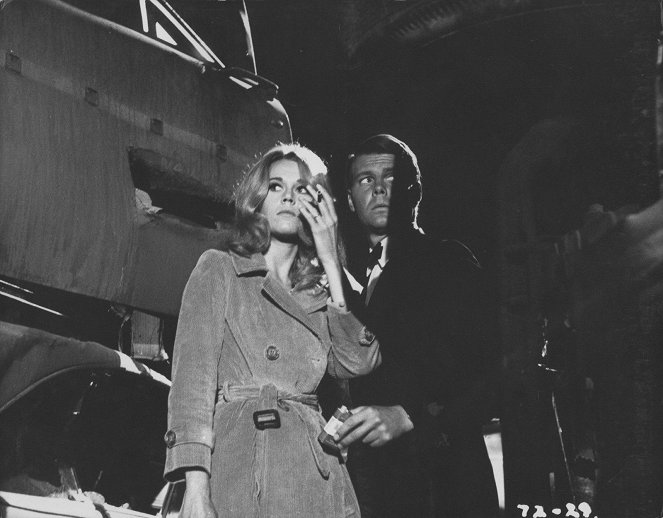Regie:
Arthur PennKamera:
Joseph LaShelleMusik:
John BarryBesetzung:
Marlon Brando, Jane Fonda, Robert Redford, E.G. Marshall, Angie Dickinson, Janice Rule, Miriam Hopkins, Martha Hyer, Richard Bradford, Robert Duvall (mehr)Inhalte(1)
In Tarl, Texas, ist die Langeweile so groß wie die Ölfelder. Doch das ändert sich schlagartig: Bubber ist aus dem Gefängnis ausgebrochen und auf dem Weg nach Tarl. Seine Frau Anna hat inzwischen ein Verhältnis mit dem Sohn des Mannes, der Bubber ins Gefängnis brachte. Sheriff Calder fürchtet die Lynchstimmung, die in Tarl um sich greift. Und schon wird Bubbers Versteck bekannt und der Mob bricht los. (Verleiher-Text)
(mehr)Kritiken (3)
Ein hinreißendes Drama mit einer Starbesetzung und vielen Spitzenleistungen. Arthur Penn hat die Stimmung einer kleinen Stadt, in der es anfangs unter der Oberfläche und später unverhohlen brodelt, ausgezeichnet dargestellt. Das Drehbuch geht mit der großen Anzahl der Figuren so souverän um, dass jede von ihnen ihren Platz hat und niemand überflüssig ist. Die Handlung ist – so wie das menschliche Verhalten – absolut unvorhersehbar. Obwohl ihr Tempo nach dem schnellen Anfang ein bisschen nachlässt, wird sie allmählich gesteigert. Am Ende läuft dem Publikum ein Schauer über den Rücken. Einer der wirkungsvollsten Filme, die ich (nicht nur in letzter Zeit) gesehen habe. Und die Musik! Eindeutige fünf Sterne.
()
The premise is not bad at all. Likewise, the cast must have been really strong for that time. However, what’s the use of it if not a single character gets enough space so I could enjoy it at least for a while. Plus, a solid start is then slowed down by the middle of the movie, which is absolutely drowsy, just so it could be eventually broken by the finale, which is the only action part of the movie and would fortunately wake up even a corpse. In the end, I evaluate it as average. I’ve seen better movies from that time.
()
Twelve years after On the Waterfront (from the same producer), Marlon Brando stubbornly refuses to abandon his strict moral principles, even at the cost of broken ribs and knocked-out teeth. As one of the first artists of the new generation of filmmakers, Arthur Penn knew when and how to use brutal violence in a film in order to deglorify it. The violence in The Chase has a dual purpose: cathartic and revelatory. After getting punched between the eyes, the existing pretence loses significance. You can hardly express your point of view more clearly. The fictional American town in the film serves as a pressure cooker, under the lid of which the most burning problems of America at that time – racial tension, consumerism, street violence, distrust of the authorities – are brought to the boiling point. With its stellar cast, the impressiveness of this adaptation of the theatrical play is diminished by the cramming of so many questions with an exclamation mark into such a small space in such a short period of time (a single night). Plausibility yields to urgent, though in no way soulless moralising. With the exception of the present-absent Redford, none of the countless characters is clearly drawn. The significance of each of them in the gradually assembled mosaic is not clear. Some only appear, graphically demonstrate one of the pathological symptoms of the mood of society and then disappear. The film lacks a more regular rhythm and, instead of continuously escalating tension, approaches its climax relatively suddenly. It is thus much slower than its title suggests. For the most part, responsibility for these shortcomings lies at feet of the studio, which took the work out of the hands of the novice director and edited the film into its own image. Penn was not happy. The loss of control angered him to such a degree that he decided to make his next film from start to finish based on his own ideas, resulting in the cult revisionist gangster flick Bonnie and Clyde. At least in that case, anger brought about something good. 75%
()


Werbung